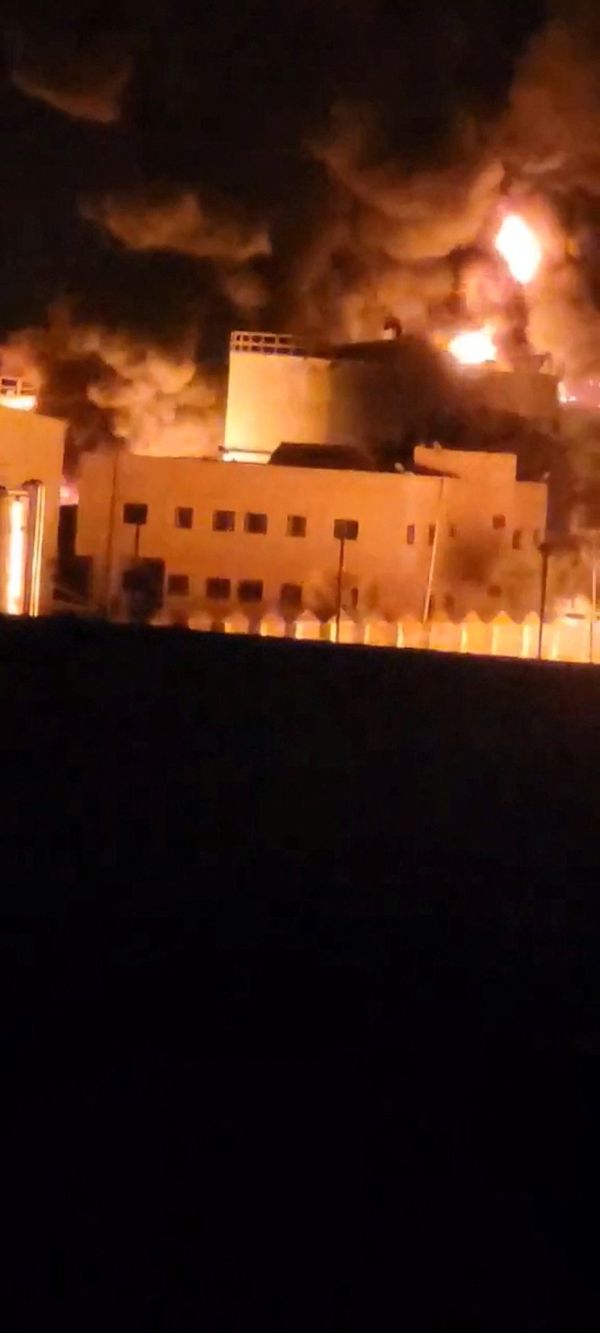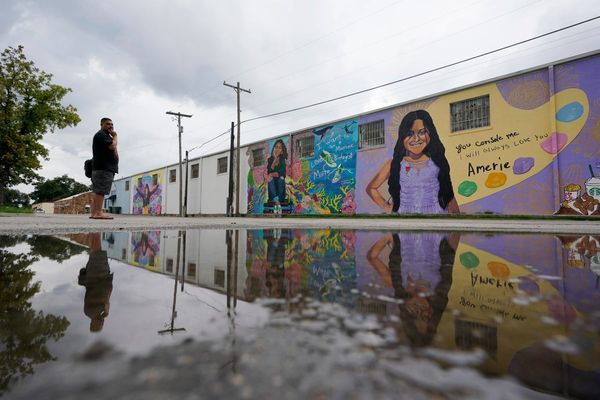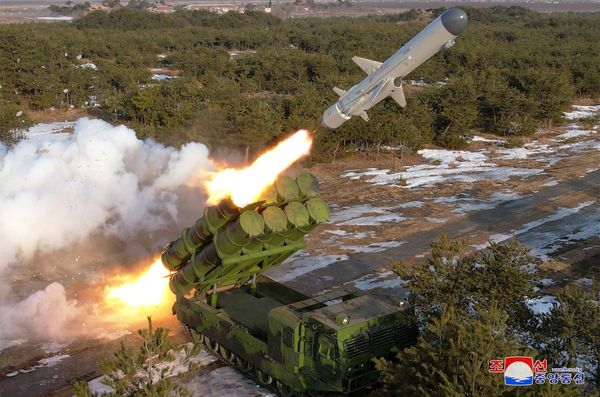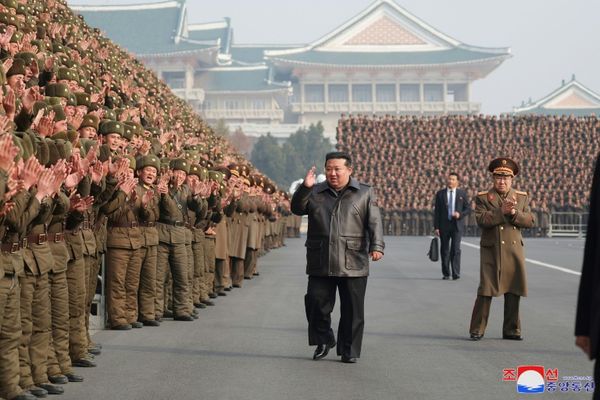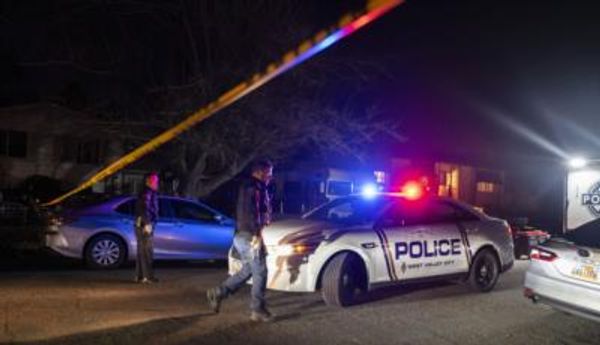
This is part two in a series. For the rest of the series, go here.
Abandoned shopping centres in Poland have been converted into emergency shelters for refugees. For up to 72 hours under flickering fluorescent lights, refugees can access emergency services, nap and have hot meals, registering their onward destination with local authorities and host country representatives.
It’s also where convicted child sex offenders and suspected human traffickers attempt to approach vulnerable people fleeing the war.
The centre I visit in Korczowa in southeastern Poland isn’t pretty. Roller beds have been pushed against the wall in large, open areas. Abandoned shops, their sagging roller doors thrust upwards, house mini-centres for medical care, veterinary services and phone credit. Refugees wander through the halls, their voices echoing across the expansive space. Children play a ball game, their shoes squeaking on the linoleum floor.
Up until very recently, anyone could come into the shopping centre. Now police patrol the doors, looking out for new faces. I’m allowed into the centre, with a police escort, to meet the centre’s security head. We have a brief conversation — no one asks to see my press card. Volunteers wander in and out; a scrappy fluoro vest is the only form of identification they wear. No background checks have been conducted on any of them.
Between 2017 and 2020, at least 600 Ukrainian individuals were trafficked into Poland.
Background checks identify child sex offenders seeking entry
Crisis coordinator from Helpers Paul Smines was called in to manage the largest refugee hub in Poland — a converted Tesco supermarket in Przemyśl just 10 kilometres from the border — a week into the crisis. A seasoned crisis expert from Norway, Smines said the place was an absolute shambles.
“It wasn’t safe,” he tells Crikey.
There was no internet and no computers when he arrived. Anyone could enter the building, offering help or private rides. Smines banned this upon his arrival, later partnering with software company Monday.com to conduct background checks on volunteers through Europol. There are just two transit hubs using this system in Poland to conduct criminal background checks on those entering.

The results of those being vetted were alarming, volunteer Rafal Krawczyk told Crikey. He asked for his affiliate organisation not to be named as he didn’t have permission to speak on its behalf.
“Around 8% of those who tried to enter the hub were refused,” he said — adding, however, that he didn’t always know the reasons why.
He did say that at least two child sex offenders, and around a dozen people with criminal histories, attempted to access the hub across March. His claims have been verified by three Red Cross volunteers, including Smines, who also worked at the centre.
“Police told us there were known human traders [working outside],” Krawczyk said. “Some women and children became lost, and nobody knew where they were.”
A spokesperson from the local police force told Crikey they weren’t aware of any people with criminal histories attempting to access the centre — meaning those turned away likely faced zero repercussions.
No computers, no internet and open access to the vulnerable
Before internet connectivity was established, Smines attempted to implement identification for volunteers, giving those who had been interviewed a blue ribbon that gained them entry to the building. Many, he said, refused to help with basic tasks and instead only wanted to speak to young women — a huge red flag.
“Sometimes I would remove people’s blue ribbons and send them away, then find the next day they’re back inside,” he said, adding others resorted to approaching refugees outside the centre. He estimates he turned away 20 drivers he deemed to be suspicious from outside the Tesco supermarket.
“They would show them pictures of beautiful houses in Germany or France and said they can drive them so they shouldn’t register inside Tesco,” he said.
But it wasn’t just what was outside the centre that was dangerous: Smines said the abandoned supermarket was not fit for purpose, with Red Cross volunteers begging for materials, including handwash and sanitation supplies — a key concern as COVID-19 and gastro spread.

“People had to go out to buy fire extinguishers … there was no ventilation … it wasn’t an appropriate place and shouldn’t be a transit centre,” he said.
“One little kid was standing over the potty and when he got up, some urine spilled on the floor. It started smoking from the electricity — it’s lucky he wasn’t sitting on the toilet because he could have died from the shock.”
Both Smines and Krawczyk said they didn’t believe the Polish government was doing enough to tackle traffickers and have yet to accept an offer to implement the background-checking software at refugee hubs across the country. NGOs and city councillors have also accused the government of taking credit for volunteer responses instead of providing adequate funding and structures to help local regions cope.
Leave it to the professionals
At the nearby border crossing in Medyka, volunteers have yellow vests with their names scrawled on them; one company is attempting to issue laminated ID cards. In Palanca, Moldova, there are plans to set up a fence around the hub, although currently anyone can wander in and out of the tents set up on the gravel field. At Siret in Romania, anyone can approach refugees at the border crossing — however, short-term accommodation tents are patrolled by firefighters, and guests or journalists must be escorted while on the grounds. And at the Przemyśl train station in Poland, anti-trafficking experts warn of unsavoury characters filming children and pressing women to get in their cars.
Volunteers have flocked from all over the world to offer “help”, often with no affiliate organisation or plan of attack. Often, the border crossings feel a bit like a music festival, with volunteers sinking beers to celebrate their successes at night (granted, once the border crossing has closed and there’s no more help to offer). Many sleep in tents and offices or in overcrowded hotel rooms. Some have ID, but Krawczyk said these can easily be bought online or stolen.

The influx of helpers has made it hard to distinguish altruist from antagonist. To date, Tesco is one of two refugee hubs in Poland that has implemented any form of background checks for volunteers. Krawczyk fears that despite this staff can’t guarantee refugees’ safety.
This frustrates Przemek Rembielak, chief officer of the refugee transit centre camp in Warsaw. The centre consists of a series of sturdy tents set up in a field opposite the Warsaw East train station. On the day I visit, at least 20 centimetres of snow sits on the ground, though the tents are warm and industrially heated.
The centre is run by the Polish Center for International Aid and the Norwegian Refugee Council. The staff there, ranging from paramedics to coordinators, are paid professionals. The centre is not designed for overnight stays — chairs are lined up for people to take naps in — but it has an air of calm not seen in other busy locations. While it was set up only a week into the crisis, it took less than 48 hours to be up and running, with everything from electricity to toilets fully functioning.
“There’s a big difference when it’s not an ad hoc operation but one prepared by professionals, like an NGO with experience, with the proper staff on board. It’s successful and saves a lot of time,” he said.
Working with a Polish NGO meant things could happen with the proper government approvals, the right documentation and an adherence to local law.
“The crucial question by the border was who is in charge — who coordinates,” said Rembielak. “Nobody — that’s what I saw at Medyka. It’s just everyone from all over the world. It’s catastrophic.”
He added untrained volunteers made it difficult for professionals to do their jobs, with NGOs and police wasting valuable time and resources coordinating and interviewing unofficial volunteers instead of identifying traffickers.
To read the next part in this series, click here.
